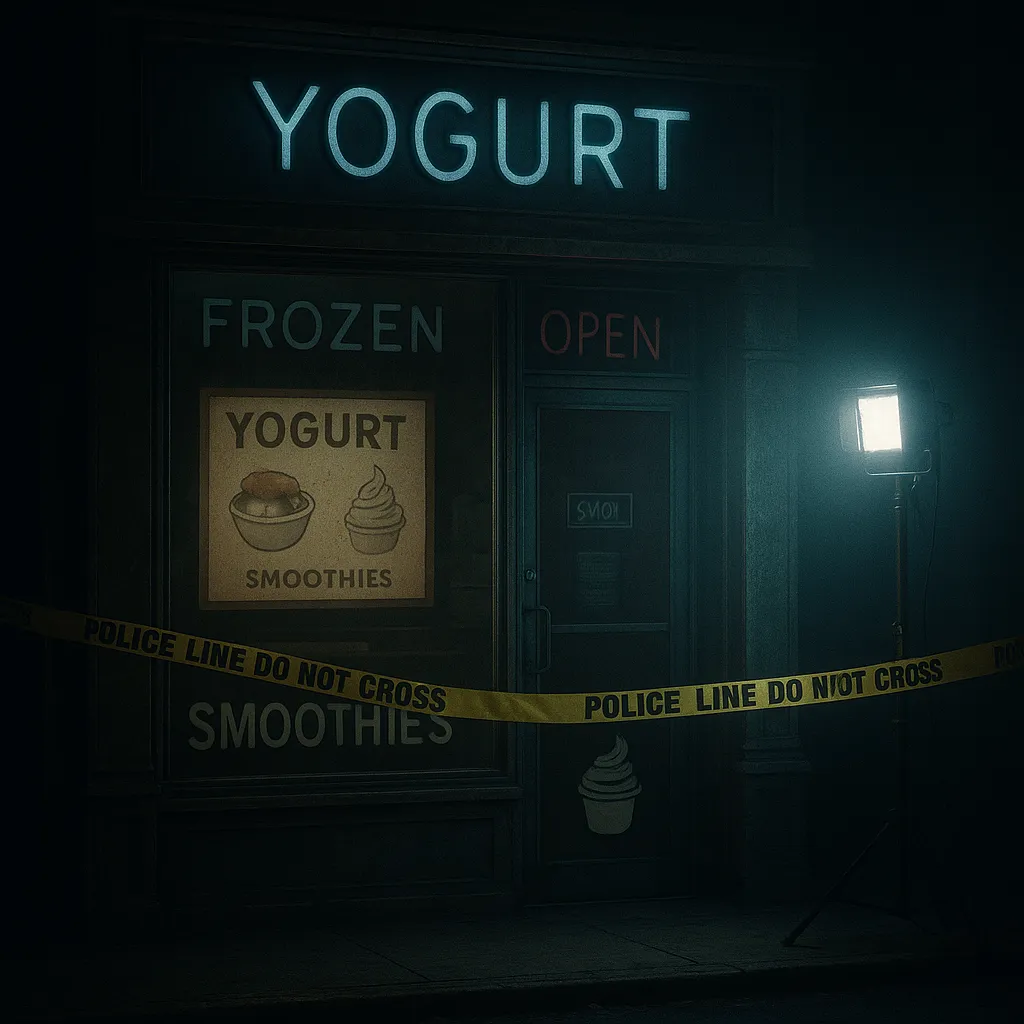HBO’s “The Yogurt Shop Murders” Docuseries Concludes as 34-Year-Old Case Remains Unsolved

The final episode of HBO’s documentary series “The Yogurt Shop Murders” aired tonight, marking the conclusion of a four-part investigation into one of Austin, Texas’s most notorious unsolved crimes. As the series finale broadcasts on August 25, 2025, the brutal 1991 murders of four teenage girls at an I Can’t Believe It’s Yogurt! shop continue to haunt investigators and families more than three decades later.
Series Finale Airs Amid Ongoing Investigation
The fourth and final episode of Margaret Brown’s documentary premiered tonight at 10 p.m. ET/PT on HBO, exploring how remaining suspects were cleared of charges and examining why the case remains unsolved after 34 years. The series, which has been airing weekly since August 3, 2025, has drawn renewed attention to the December 6, 1991 murders of 13-year-old Amy Ayers, 17-year-old Jennifer Harbison, her 15-year-old sister Sarah Harbison, and 17-year-old Eliza Thomas.
The documentary has provided audiences with rare archival footage and previously unrevealed interviews with family members, investigators, and others connected to the case. Director Margaret Brown spent years developing the project, including conversations with investigative teams and victim families, as well as incorporating footage from interrogation rooms featuring teenage suspects who were later imprisoned for the crime before having their convictions overturned.
The Enduring Mystery
The case has remained one of Austin’s most perplexing unsolved crimes. On that tragic night in 1991, Jennifer Harbison and Eliza Thomas were working at the yogurt shop when they were joined by Sarah Harbison and Amy Ayers, who were waiting for a ride home. All four were found bound, gagged, and shot execution-style in the back of their heads, with the establishment deliberately set on fire to destroy evidence.
Despite multiple arrests over the years, including the 1999 conviction of two suspects whose cases were later overturned due to DNA evidence that excluded them, no one has been successfully prosecuted for the murders. The convictions of Robert Springsteen and Michael Scott were dismissed in 2009 after DNA technology advances showed that evidence from the crime scene did not match either suspect.
Hope Through DNA Technology
As of August 2025, no new arrests have been made in connection with the case, though a fresh team of investigators and prosecutors continues to work on the murders. Austin Detective Dan Jackson remains focused on pursuing leads and regularly updates the families who have endured decades of waiting for justice.
The case’s most promising lead remains an unidentified sample of male DNA collected from one of the victims, which was instrumental in exonerating the earlier suspects. While the FBI has identified a Y-chromosome match in a public research database, federal officials have been reluctant to disclose forensic details, leading to ongoing tensions between federal authorities and Travis County prosecutors.
U.S. Representative Michael McCaul, whose district encompasses Austin, noted that investigators are “awaiting further improvements in DNA science to resubmit what remains at the crime lab for additional testing.” He emphasized that while some Y-STR DNA from the crime scene still exists, it remains in very limited quantities, necessitating advances in scientific technology before further testing can be conducted.
Impact on Austin and Families
Director Margaret Brown’s documentary explores not only the investigation but also the enduring trauma experienced by the victims’ families. Brown approached the sensitive subject with particular care, noting that some family members, including Barbara Ayres-Wilson, mother of Jennifer and Sarah, found media interactions emotionally overwhelming. “It took her weeks to recover” after speaking to journalists, Brown recalled, acknowledging the immense pain that continues to affect the families.
The series has highlighted how the murders transformed Austin’s sense of security. As filmmaker Claire Huie noted in the documentary, the murders felt like “a big-city crime in a place that still had a small-town ambiance,” leaving a lasting impact on Austin’s self-perception.
Continued Call for Information
Austin Police continue to encourage anyone with information about the case to contact the Austin Police Homicide Tip Line at 512-477-3588 or Crime Stoppers at 512-472-TIPS. The case remains active, with investigators expressing cautious optimism that advancing DNA technology may eventually provide the breakthrough needed to solve the case and bring closure to the families who have waited more than three decades for answers.
The conclusion of HBO’s documentary series serves as both a comprehensive examination of the case and a reminder that justice for Amy Ayers, Jennifer Harbison, Sarah Harbison, and Eliza Thomas remains elusive, even as technology and investigative techniques continue to evolve.
Categories
Beauty and fashion Business and finance Climate Entertainment Food and drink Games Health Hobbies and leisure Jobs and education Law and government Other Politics Science Shopping Sports Technology Travel and transportationRecent Posts
Tags